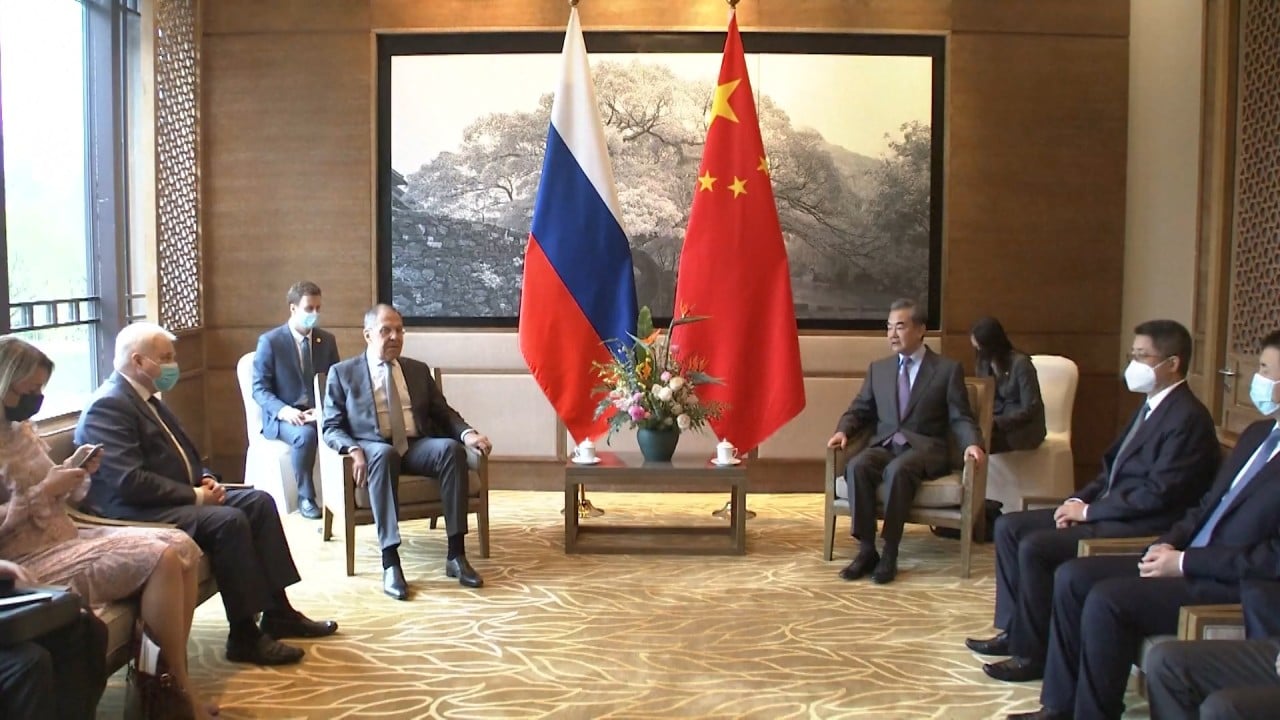
US-China rivalry could force unwelcome choices on some countries
- Observers say Beijing is not trying to create its own camp but aiming to discourage others from aligning with Washington
- Smaller nations will need to carefully manage escalating competition between the two powers
Diplomatic observers said that while China may not be forming its own diplomatic camp, it was trying to discourage nations from aligning with the US – and these countries needed to carefully manage the situation.
This week, Wang is hosting his counterparts from Singapore, Malaysia, Indonesia, the Philippines and South Korea in a succession of one-on-one meetings in the southeastern province of Fujian, when the South China Sea – subject to competing disputed claims and a potential flashpoint for US-China relations – is likely to be raised.
Huang Jing, a professor at Beijing Language and Culture University, said the Alaska talks had reinforced that Sino-US rivalry would remain the norm in Southeast Asia. The US needed strategic bases for its operations in the region, while China’s aim was to prevent its neighbours from providing that support, he said.
“The purpose of strengthening ties with surrounding countries was not to pull them to China’s camp, but to prevent them from joining the US camp,” Huang said. “It is unrealistic to ask China’s neighbouring states to choose China over the US, as China has neither the ability nor the willingness to provide security protection for them,” he added.
Richard Heydarian, professorial chairholder in geopolitics at Polytechnic University of the Philippines, said Beijing realised the change in the US administration was not going to fundamentally alter US-China rivalry.
Russia, Iran and China had a long-standing interest in building up a united front, as each of them were sanctioned by the US, but other nations -especially those in Southeast Asia – might find the rivalry a challenge to manage, he said.
“This is the problem that Southeast Asia is facing right now, that we are being forced to make choices, which is the very thing that we hate,” he said. “We don’t want another Cold War. The Cold War was devastating for Southeast Asia”.
According to Heydarian, choices will be almost impossible for Southeast Asia and developing nations to avoid. “Not making choices is a choice in itself that also carries its own risk,” he said. “It might come to a point whereby China and the US will say that if you do not side with us on this, you essentially will be treated as a neighbour of the other side.” But, he said, Southeast Asian countries would try to find a path between the two rivals. Some nations will actually become the key mediators.”
US ‘neglect’ drives Asean towards China in superpower economic rivalry, analysts say
While Wang has been reaching out to the Middle East and Asia, US Defence Secretary Lloyd Austin on Wednesday spoke over the phone to his Indonesian counterpart Prabowo Subianto about an upcoming joint military exercise and the South China Sea disputes.
Austin visited India in March, while US Secretary of State Antony Blinken told Nato and Europe they should work together to handle the challenges posed by China. Japanese Prime Minister Yoshihide Suga will visit the US this month, with China expected to be a key item for discussion.
Wang Yiwei, an international relations professor at Renmin University of China, said the rivalry between China and the US would centre on restoring international order after the Covid-19 pandemic, including in supply chains. “The US hopes to rebuild the global supply chain, and therefore China needs to get its neighbouring countries and Europe to boost trade,” he said.
India receives US Defence Secretary Lloyd Austin with China on its mind
Chen Qi, secretary general of Tsinghua University’s Centre for International Security and Strategy, said smaller nations would face the dilemma of choosing sides, but that it could be manageable. These countries could try maintaining relations with both China and the US – getting benefits and offers from both sides.
“Though small countries are inevitably facing a dilemma of taking sides, I don’t think it would be a big trouble,” he said. “Smart countries don’t stick to one side, and they benefit from the rivalry between China and the US.”



